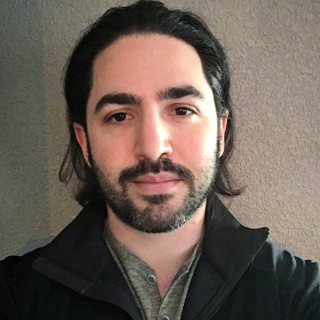
(This is part III of the Residentured Servitude Series)
In the past, if you asked a resident for their plan if forced (or desiring) to leave medicine, the answer would generally be “teach biology and probably be ruined by debt”; or, for those not majoring in biology, “I don’t know, but I’ll probably be ruined by debt.” As an acute sense of the value of business and industry has crept into the hearts and minds of millennial medical students, and disruptive innovation enters the algorithm, management, consulting, and administrative careers have come to be viewed as lucrative non-clinical opportunities to have large, hospital-wide effects on patient care, an earlier path to professional-level compensation, and a potential route that avoids the negative aspects of residency and physicianship, in general. Medicine and law are no longer the prevailing paths of the intelligentsia; the startup mindset replaced that rigid, professional mentality and the generational zeitgeist has evolved accordingly.
Who are Osler and Cushing in a world of Zuckerbergs and Musks? Why aspire to wear an over-starched white coat when you can don a broken-in hoodie?
Whether you want to classify them as millennials or demean them as snowflakes, there is a palpable change in the attitude of incoming medical students and residents. I can only speak from personal experience and that of many discussions with peers and colleagues, but there is an unprecedented sense of entitlement based on prior accomplishment, or sometimes just potential, and an unwillingness to “pay dues” simply because their bosses did before them. They pay limited, if any, heed to tenure and offer minimal deference to title. They truly do not care if you hiked uphill, both directions, in the snow. In fact, they want to know why you chose not to reverse commute and walk downhill both ways or why you did not simply build a tunnel through the snow, whichever is more cost-effective. In a society that swiftly traded a “time-served” promotion system and reward model, for one of “value-added,” who can blame them. Medicine has lagged in this respect and many others.
Most pertinently, healthcare has been slow to accept and adopt improvements in work-life balance, and worse, at-work lifestyle. My fellow undergraduates work at companies that provide nap pods, have cold brew coffee on tap, and enjoy free snacks throughout the day. They have company retreats, stock options, and a fraction of my educational loans. I steal stale coffee where I can, during 24 hour stints without sleep, and was once told that the hospital graham crackers had been locked away because residents had eaten too many of them. Peers and colleagues sneak jello from the trays of comatose patients, and, sometimes, that is their only caloric intake for 10–12 hours. Life-preserving sustenance to us, but a cost-cutting measure to the hospital. This superficial example illustrates a deep-rooted problem in healthcare education and the system it supports.
The downstream effect: we are losing the recruitment battle for the greatest minds of the next generation.
One study notes that attrition amongst general surgery residents, which is relatively high, most often results in relocation or switching “to another specialty after the first postgraduate year owing to lifestyle-related issues.” In a July 2015 article, Siren Song of Tech Lures New Doctors Away From Medicine, the author describes, “both a push and a pull motivating young doctors to seek opportunities in technology.” She points out data from UCSF and Stanford School of Medicine where proximity to Silicon Valley’s density of healthcare startups and entrepreneurial culture may encourage the exodus from medicine to industry (the “pull”). A discussion between a 4th year medical student and a mid-career attending in the NEJM Catalyst entitled, “Medicine for Millennials — What Has Changed?” further characterizes the differences between opportunities in medicine twenty years ago versus now. The student is correct in characterizing the future of medicine as “exciting, but murky at the same time” (the “push”). And, while he does make brief mention of the mindset of millennials being different from those who came before, this changing attitude, often understated, will greatly impact training in the near future.
Those aforementioned companies view their employees’ health and happiness as an asset that begets productivity. The healthcare system perceives residents as fortunate to have a training spot, and treats them as such. But what happens when the incoming trainees begin to believe they deserve, or are owed, that spot? If indentured servitude hinges on the servants’ reliance on their position for ultimate survival, what happens when all-of-a-sudden their opportunities exponentially expand? Perhaps you find that the emperor has no scrubs, and the hierarchy suffers or collapses altogether. Either way, young physicians are jumping ship for non-clinical or clinic-adjacent roles, or, they are staying and, for better or worse, challenging centuries-old training paradigms. Established physicians have found threats to the status quo off-putting, and have condemned them in under-their-breath grumbles and outwardly expressed misgivings. Their concerns are justified, but I remain cautiously optimistic. My recommendation is active understanding, guidance, and involvement in lieu of passive grumbling and complaining.
Before being hyper-critical of a generation hell-bent on “destroying” the institution you know-and-…uh…complain about, remember that, while doctors were not paying attention, healthcare exchanged simple carrots like the physicians’ lounge for systemwide sticks like CPOE, P4P, MACRA, and a litany of other acronymous encumbrances.
MACRA is an acronym that contains an acronym. The appropriate question here: “what is that and who let it happen?!”
Recall that, under our guard, medicare reimbursement has not kept pace with practice expenses or even inflation. And, let me remind the old-timers who keep telling me about the “golden age,” proclaiming its greatness at me, that you traveled, all-expenses-paid, to Hawaii to go golfing with drug reps. But, because of abuses of that system, I had to throw out all of my pens with company names on them.
I’m constantly searching for pens.
Current physicians are paying for the past sins of bad ones and the indifference, and inaction, of good ones. Every current physician (yes, even you, the busy one), is culpable for our ineptitude in the realm of patient and physician advocacy and our outright legislative policy failures. Is it that surprising that incoming physicians voraciously hunt change, and, when unavailable, desperately seek alternatives? Is it so unbelievable that millennials would buck the system in ways we would never dane to? Well, welcome to the tipping point.
Call them what you like, perhaps even note that their rise and success is a product of generational timing and circumstance. The cause and verbiage are irrelevant. This generation of providers is the first to stand up, as a group, to the tyranny of a hierarchical dogma that nurtures inefficiency, encourages abuse, and has permitted, if not encouraged, the development of a system that fails patients on a societal level, and has perpetuated, for physicians, widespread burnout and the highest rate of suicide amongst all professions.
They are the first to ask (out loud, to the people in charge of them), “Why are we doing things that don’t make sense?” and not be assuaged by the answer “Because that’s how it works.”
Given past inefficacies, can you really argue that their misgivings are unwarranted? I am guilty as the next of initial disdain for millennials’ seemingly intrinsic feelings of entitlement, narcissism, and overbearing questioning of authority, but I have found their bureaucratic mistrust and inquisition of power can be a formidable tool when channeled properly. You can fight it, you can resist it, but the future is coming, and it is moving forward with or without you. It does not take healthcare Nostradamus to see that significant change is on the horizon, and it will be millennial-driven.
With that in mind, how about taking the high road and being the adults in the room by squashing an unnecessarily and increasingly adversarial relationship that will undoubtedly prove unproductive. We can choose to embrace enthusiasm for disruption as an opportunity to guide youthful, idealistic change and provide much needed input and historical perspective. We can teach the difference between obedience and allegiance, between obligation and duty, between an occupation and a calling, and in doing so, dissuade entitlement while encouraging empathy and excellence. We can involve ourselves in reconciling an old, failing system by providing mentorship to the burgeoning one. Once we open our offices and our minds to a new generation’s thought process, and prepare for the discomfort of a complete overhaul, medicine will naturally find a way to recruit and retain our best, brightest, and most compassionate — for the betterment of healthcare.
Definition of Residentured Servitude
Part I: Stacking Up Against Pilots and Fast Food Workers
Joshua J. Goldman, MD is a recent graduate of Integrated Plastic and Reconstructive Surgery (PRS) at the University of Nevada, Las Vegas School of Medicine and is the incoming Integrated Craniomaxillofacial and Microsurgery Fellow at Beaumont Hospital, Royal Oak. His professional interests, outside PRS, include healthcare advocacy, device innovation, digital marketing, ethics, medical education, and physician wellness. You can follow him on instagram at @GoldStandardPlasticSurgery. He is also a 2018–19 “Doximity Author.”
The above represent his experience and viewpoints alone. They are not representative of his institution, program, or hospital. Dr. Goldman has no conflicts of interest to disclose.






